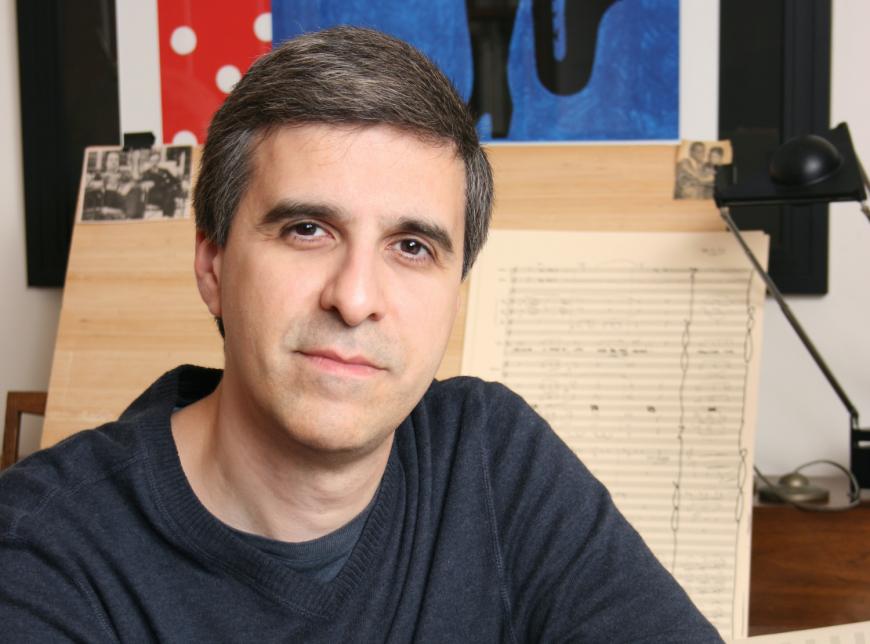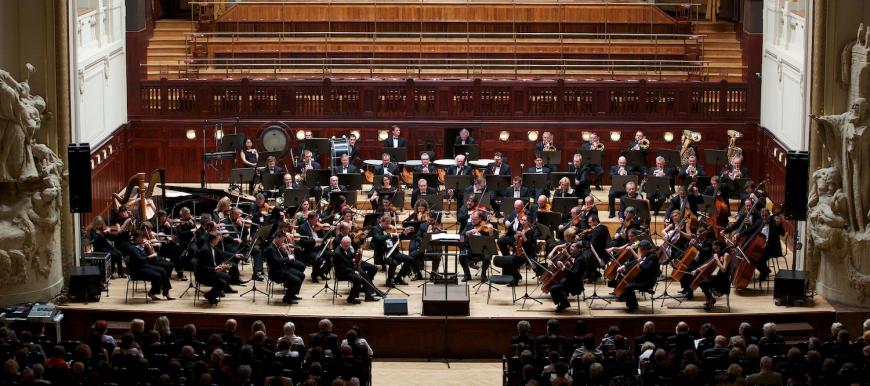
Long ago, composer-arranger Vince Mendoza became one of our most adept practitioners of what was once called the “third stream” flowing out of the intersecting rivers of classical and jazz. To this mixture, he adds politics in Freedom Over Everything (Modern/BMG), an album containing two polystylistic concertos and one symphonic song.
The major piece on the CD is a Concerto for Orchestra commissioned by the Czech National Symphony Orchestra in 2016 — not coincidentally an election year — and apparently expanded by 2020 in response to even more tumultuous conditions. The original commission called for a five-movement concerto that might have been structured like Bartók’s famous work of the same name. Indeed, it sounds as if Bartók’s first movement was very much on Mendoza’s mind for his own first movement, starting on a troubled discordant ruminative note, then finding a more agitated form interrupted by segments for electric guitar, bass, and trap drum set with smoothly integrated orchestral backing. It even ends in an abrupt manner close to that of Bartók’s.

Ah, but the comparisons with Bartók fall away after that — and under the pressure of events, the five movements became seven. Mendoza labels his first movement “American Noise,” referencing what he calls the “anger and discord” of the 2016 election, and goes on to provide a scenario of mourning, outrage, activism, and hope in the form of, in Dr. Martin Luther King Jr.’s words, “an arc that is long yet bends toward justice.” “Consolation” is true to its word in a relaxed symphonic idiom spiked with touches of cymbals. “Hit The Streets” is dominated by drummer/percussionist Antonio Sanchez, the music like that of a tense score for a crime drama, while Joshua Redman offers suave obbligato commentary on tenor sax to a seamless classical/jazz orchestral fusion in “Meditation.”
The cinematic language doubles down into documentary-scoring mode in “Justice and the Blues,” but before long, a rock guitar and heavy rhythm section take over just before rapper Black Thought (of The Roots) delivers his 2020 state-of-the-union message over the orchestra in “Freedom Over Everything.” That segues directly into a brief Finale that serves as a grand, wide-screen coda — and try as Mendoza does to join everything together smoothly, the rap, an eloquent burst of outrage, is too jarring to be fully integrated into the arc. Was that the point?
“To the Edge of Longing” has a delicate arpeggio opening, soon becoming a gorgeously lyrical song first for Czech NSO concertmaster Alexej Rosik and then for soprano Julia Bullock, who sounds operatically full and ripe in tone, though the 1905 Rainer Maria Rilke text is barely intelligible. This piece follows in the tradition of Barber’s Knoxville: Summer of 1915, an unabashedly tonal, full-blown symphonic song (originally released as a digital single a month ahead of the album).
The 15-minute Concertino for Trumpet and Orchestra, New York Stories, begins with the soulful Quiet City trumpet of Czech NSO founder Jan Hasenöhrl, yet soon develops some big city anxiety, complete with simulated traffic horns. The pensive mood returns, then Sanchez restores some tension and it rolls along in a vital, well-balanced third-stream manner. The best part is the last three minutes where the sauntering team of walking bass and trap drums rises and fades in support of a big band march. The jazz cats would recognize it as a vamp; to classical folk, it’s a passacaglia. Whatever you call it, it’s a savvy way to exit from a trio of skillfully knit compositions, as rendered by the Czech NSO and conducted by the composer.





